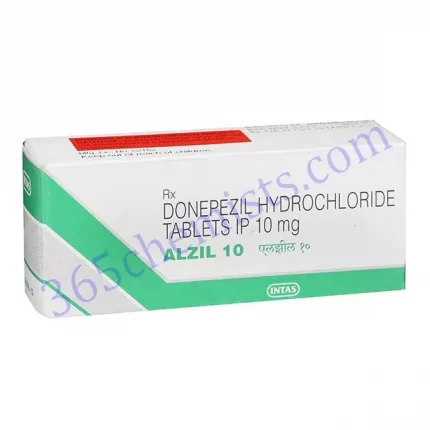Introduction
A drug called Rivamer 3mg Tablet is used to treat dementia caused by Parkinson’s disease and Alzheimer’s disease that is accompanied by cognitive decline. It contains the cholinesterase inhibitor medication Rivastigmine, which is the active component. By raising the levels of specific brain chemicals, Rivamer aids in the improvement of memory, thinking, and other cognitive processes.
Mechanism of Action
Rivamer functions by preventing the breakdown of acetylcholine, a neurotransmitter involved in memory and learning, by the enzyme acetylcholinesterase. Rivamer increases acetylcholine levels in the brain by inhibiting this enzyme, which enhances cognitive function.
Dosage and Administration
It is recommended to take a Rivamer 3mg Tablet orally, typically twice daily with food. Depending on the patient’s response and the degree of cognitive impairment, the dosage may change. It’s crucial to adhere to the schedule and dosage that your doctor has prescribed.
Related Product
Rivamer 1.5mg Tablet
Rivamer 3mg Tablet
Precautions and Warnings
- Any medical conditions you have should be disclosed to your healthcare provider, especially any heart issues, lung conditions, seizure disorders, gastrointestinal problems, or urinary obstruction. They will assess the advantages and disadvantages of Rivamer in your particular situation.
All medications you are taking, including prescription, over-the-counter, and herbal remedies, should be disclosed to your doctor because they may interact with Rivamer and reduce or increase the likelihood of positive side effects. - Due to the potential for dizziness or drowsiness from Rivamer, exercise caution when driving or operating machinery.
- Individuals with a known hypersensitivity to rivastigmine or any other formulation ingredient should avoid using Rivamer.
- Before beginning Rivamer treatment, discuss with your healthcare provider if you are pregnant, intend to become pregnant, or are nursing a baby.
- It’s crucial to let your doctor know about any medical conditions you have before taking Rivamer 3mg Tablet, especially if you have heart issues, lung conditions, seizures, gastrointestinal issues, or urinary obstruction. In your particular situation, your healthcare provider will weigh the advantages and disadvantages of Rivamer.
- Additionally, it’s crucial to let your doctor know about all the drugs you’re taking, including prescription, over-the-counter, and herbal remedies. Rivamer and certain medications may interact, reducing the efficacy or raising the possibility of negative side effects.
- Due to the potential for dizziness or drowsiness from Rivamer, exercise caution when driving or operating machinery. Consult your healthcare provider if you experience any side effects that limit your capacity to engage in these activities.
- Individuals with a known hypersensitivity to rivastigmine or any other formulation ingredient should avoid using Rivamer. It is crucial to let your doctor know if you have ever experienced an allergic reaction to Rivamer or medications that are similar.
- Before beginning Rivamer treatment, discuss with your healthcare provider if you are pregnant, intend to become pregnant, or are breastfeeding in order to weigh the potential risks and advantages.
Possible Side Effects
Rivamer 3mg Tablet side effects may include fatigue, insomnia, dizziness, headache, nausea, vomiting, diarrhoea, loss of appetite, and weight loss. Although these side effects are typically minor and short-lived, you should let your doctor know if they worsen or persist.
You should seek immediate medical attention if you experience any serious side effects, including severe stomach pain, black or bloody stools, difficulty urinating, chest pain, an irregular heartbeat, or symptoms of an allergic reaction (rash, itching, swelling, extremely dizziness, difficulty breathing).
Conclusion
A drug called Rivamer 3mg Tablet is used to treat dementia caused by Parkinson’s disease and Alzheimer’s disease that is accompanied by cognitive decline. It functions by raising acetylcholine levels in the brain, which enhances cognitive function. It’s critical to adhere to the recommended dosage and schedule, let your doctor know if you have any conditions, and be aware of any possible side effects. You can maximise the advantages of Rivamer and improve your cognitive abilities, leading to an improved quality of life, by cooperating closely with your medical team.
Alzheimer’s disease and Parkinson’s disease dementia cognitive impairments can be treated with the drug Rivamer 3mg Tablet. Rivamer boosts acetylcholine levels in the brain, enhancing cognitive function by inhibiting the enzyme acetylcholinesterase. It’s critical to adhere to the recommended dosage and schedule, let your doctor know about any conditions you are dealing with or medications you’re taking, and be aware of any possible side effects. Working closely with your medical staff will enable you to maximise the advantages of Rivamer and advance your cognitive functioning, ultimately improving your quality of life.











